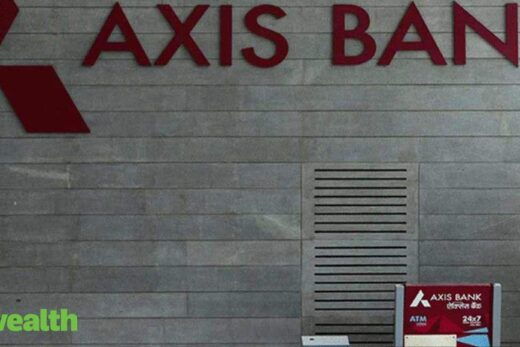With Brexit concerns out of the way, can this stock deliver even better returns?
Dalal Street analysts have mixed views on the stock, with a consensus ‘hold’ as they want to see further signs of improvement in the business.
“Tata Motors has this habit of making a lot of promise, but not actually delivering. When it delivers, it is one-off, and then a pension plan or some other thing comes in and hits it in a different way. I am a little wary of predicting what will happen to Tata Motors. I will just wait till the results, see what commentary comes in before we can go in,” Deepak Shenoy, Founder at Capital Mind, told ETNOW.
He said the stock is not expensive and one can take a little bit of a position, but “we are just going to wait and watch.”
Jhunjhunwala was seen entering the stock in September quarter. He owned 40,000,000 shares, or 1.29 per cent stake, in the JLR owner at the end of the September quarter. That stake is worth just over Rs 728 crore today and makes Tata Motors Jhunjhunwala’s fifth biggest stock bet after Titan (Rs 7,521 crore), Escorts (Rs 966 crore), Jubilant Life Sciences (Rs 792 crore) and Crisil (Rs 758 crore).
The auto major reported Rs 28,826.23 crore loss for FY19, which narrowed to Rs 12,070.85 crore in FY20. The losses stood at Rs 8,752 crore in the first two quarters of FY21.
Following its dramatic fall earlier this year, the stock has rebounded 189 per cent from its 52-week low of Rs 63. It is still off its January 2015 high of Rs 500.
Analysts said the crash in stock price at the start of 2020 was mainly due to lockdowns in Europe and worries that growth in Europe will remains sluggish for some more time, as a mutated Covid virus was detected in the UK. That said, improving demand in China is a huge positive, they said.
“For Tata Motors, the story is of how much it can achieve out of cost cutting. The economic revival in China has been strong and is improving month on month, but European demand remains subdued, given the uncertainty around the economy and Covid pandemic. There has been a significant spike in commodity prices for all the auto companies, with steel prices moving up 50 per cent in the past six months. There are pushes and pulls on both sides,” said Sandip Sabharwal of asksandipsabharwal.com.
Sabharwal said Tata Motors’ cost-cutting measures and volume growth for Europe and the US would be key triggers to watch out for.
“On a risk-reward basis, Tata Motors still has some steam left. For people who can stand volatility, Tata Motors can be a reasonable bet for the next one year, because any positive data will lead to an upside in the stock,” he said.
British arm JLR accounts for over 80 per cent of Tata Motors’ revenues. Analysts said the JLR management recently indicated tighter controls on spending and lower capex than their earlier guidance due to the Covid-19 pandemic, which could resolve cash flow issues in the near term.
The UK government has assured support to the company to maintain employment during the situation, they said.
Cost-saving initiatives and clear focus on cash flow improvement can help Tata Motors improve its financials, which would lower its net automotive debt going forward, Reliance Securities said in a recent note.
“A strong product portfolio, reshaping of the domestic PV business and focus on the profitable CV business would help restructure Tata Motors’ India business. A faster-than-expected recovery in the global auto space, consistent improvement in cash flows and a likely reduction in net auto debt can boost investor confidence and make a case for a stronger re-rating of the stock,” the brokerage said.
The EU-UK Trade and Cooperation Agreement finalised on December 23 allows free trade of goods. It was one of the uncertainties for the stock.
“This removes a key potential risk for Jaguar Land Rover (JLR), which can now continue to export (and import) vehicles between the UK and the EU without additional costs. While free trade is now subject to rules of origin (RoO) requirements, we believe JLR should be largely compliant,” foreign brokerage CLSA said.
The brokerage has maintained a ‘buy’ rating on Tata Motors with a price target of Rs 220. CLSA said investor focus is likely to shift back to Tata Motors’ volume and recovery in the mix as well as JLR’s cost-reduction efforts.
For November, Jaguar Land Rover (JLR) reported a 3.4 per cent YoY decline in total sales at 46,542 units
The year-on-year (YoY) sales growth in China for the Tata Motors-owned brand increased 29 per cent, marking the fifth consecutive month of double-digit sales growth in the region. Sales grew 4.9 per cent in North America, achieving best-ever November volumes.
Tata Motors’ domestic sales (India operations) grew 26 per cent YoY to 47,859 units from 38,057 units a year ago. The jump was led by personal vehicles, whose sales jumped over 108 per cent to 21,641 units. Commercial vehicle sales fell 9 per cent for the month to 27,982 units.
The stock has 10 ‘buy’ and seven ‘outperform’ ratings, compared with six ‘underperform’ and three ‘sell’ calls, publicly available data on Reuters Eikon database showed. Six brokerages have ‘hold’ ratings on the stock.



